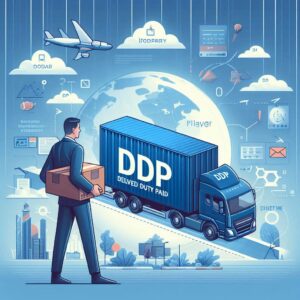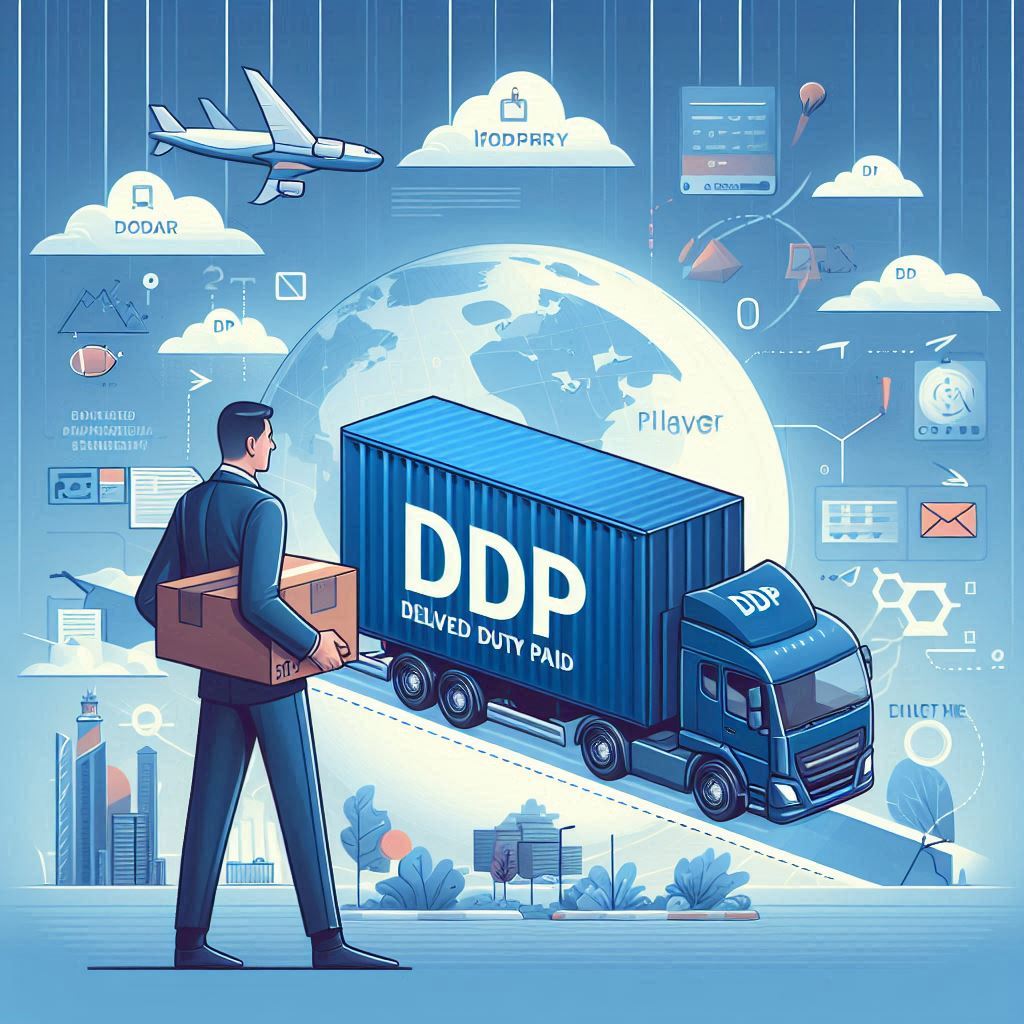DDP: Guide to ddp delivery terms for imports under Incoterms 2020
DDP (Delivered Duty Paid) is one of the most important Incoterms 2020 rules, defining delivery terms in international trade. With DDP, the seller bears the greatest responsibility for delivering the goods. It is the most comprehensive delivery formula, which significantly simplifies the import process for the buyer.
Check out our transportation services
Definition of DDP and its importance in imports
Delivered Duty Paid means that the seller is fully responsible for delivering the goods to their destination. The seller assumes all costs and risks of transportation, including payment of customs duties and taxes. This Incoterms formula is particularly advantageous for importers who do not want to deal with the formalities of customs clearance.


Responsibilities of the seller in the DDP
Responsibilities
The seller in the terms of delivery of the DDP assumes full responsibility for the entire process. His responsibilities include making comprehensive arrangements for the transportation of the goods and carrying out all necessary customs procedures. He is also responsible for paying customs duties and VAT. In addition, he bears all costs associated with the delivery of the goods to the designated destination.
Explore our transportation solutions
Delivery process in the DDP model
Implementation of transport
The seller under the DDP is responsible for the entire logistics chain. He must take care of the selection of appropriate means of transportation, ensure that the goods are properly insured and complete all customs formalities. The delivery process is supervised by him from the moment of shipment to the delivery of the goods to the agreed destination.
Importing from China using DDP
Importing from China using DDP terms significantly simplifies the process for the importer. The seller assumes responsibility for the entire transaction, including arranging international transportation and customs clearance. This model is particularly suitable for companies that have no experience in international trade.
View our import services
Comparison of DDP with other Incoterms rules
DDP vs DAP
The main difference between DDP and DAP is the responsibility for customs duties and taxes. With DDP, all these costs are borne by the seller, while in DAP they are charged to the buyer. This is an important distinction that affects the final price of the goods.
DDP vs EXW
The DDP formula is the opposite of EXW in terms of the division of responsibilities between the parties. While in EXW almost all of the responsibilities lie with the buyer, in DDP it is the seller who assumes full responsibility for the delivery process.
Costs in the DDP transaction
Cost structure
DDP delivery terms mean that the seller includes in the price all costs related to transportation, insurance, customs clearance and taxes. This complexity often translates into a higher final price, but at the same time provides the buyer with cost predictability and minimized risk.
DDP Incoterms 2020 delivery terms
The Incoterms 2020 rule details the seller's responsibilities under the DDP formula. The seller bears all risks of delivery until the goods are handed over at the agreed destination. The goods must be delivered ready for unloading, with complete documentation proving compliance with all import requirements.
Formal aspects of DDP
Documentation at DDP
The process of delivery under DDP conditions requires the preparation of comprehensive documentation. The seller must take care of all transport documents, customs documents and certificates of origin. Special attention should be paid to insurance documents, which must cover the entire transportation route up to the final place of delivery.
Practical application of DDP
The DDP formula is particularly applicable in situations where the buyer has limited experience in international trade. It also works well in cases requiring full logistical support and when predictability of the cost of the entire transaction is important. The seller takes over all import formalities, which significantly simplifies the process for the buyer.
Legal aspects of DDP
Delivering under the DDP formula requires excellent knowledge of customs and transportation regulations of both the country of shipment and the country of destination. The seller must ensure that the entire process complies with local trade regulations and administrative requirements. Particular attention must be paid to tax issues, including the settlement of VAT in international goods trading.
The future of DDP
The DDP formula is gaining importance with the growth of international trade and e-commerce. The growing number of cross-border transactions means that buyers are increasingly looking for comprehensive logistics solutions. DDP responds to these needs by offering a full service for the import process.
Challenges in DDP delivery
A vendor making deliveries under the DDP formula must be prepared for a variety of challenges. Proper calculation of all costs, taking into account varying customs and tax rates in different countries, is crucial. Knowledge of local import regulations and procedures is also important.
DDP in international trade practice
Successful delivery under the DDP formula requires the vendor to have an extensive network of contacts and logistics partners. Cooperation with experienced carriers and customs agents is essential for smooth handling of the entire process. The vendor must also have adequate financial resources to cover all costs associated with the delivery.
Summary and recommendations
DDP represents the most comprehensive delivery formula under Incoterms 2020. By choosing these delivery terms, the buyer receives full support for the import process, but must expect a higher final price for the goods. It is crucial to properly select a trading partner with the right experience and resources to deliver under the DDP formula.
External sources and references:







